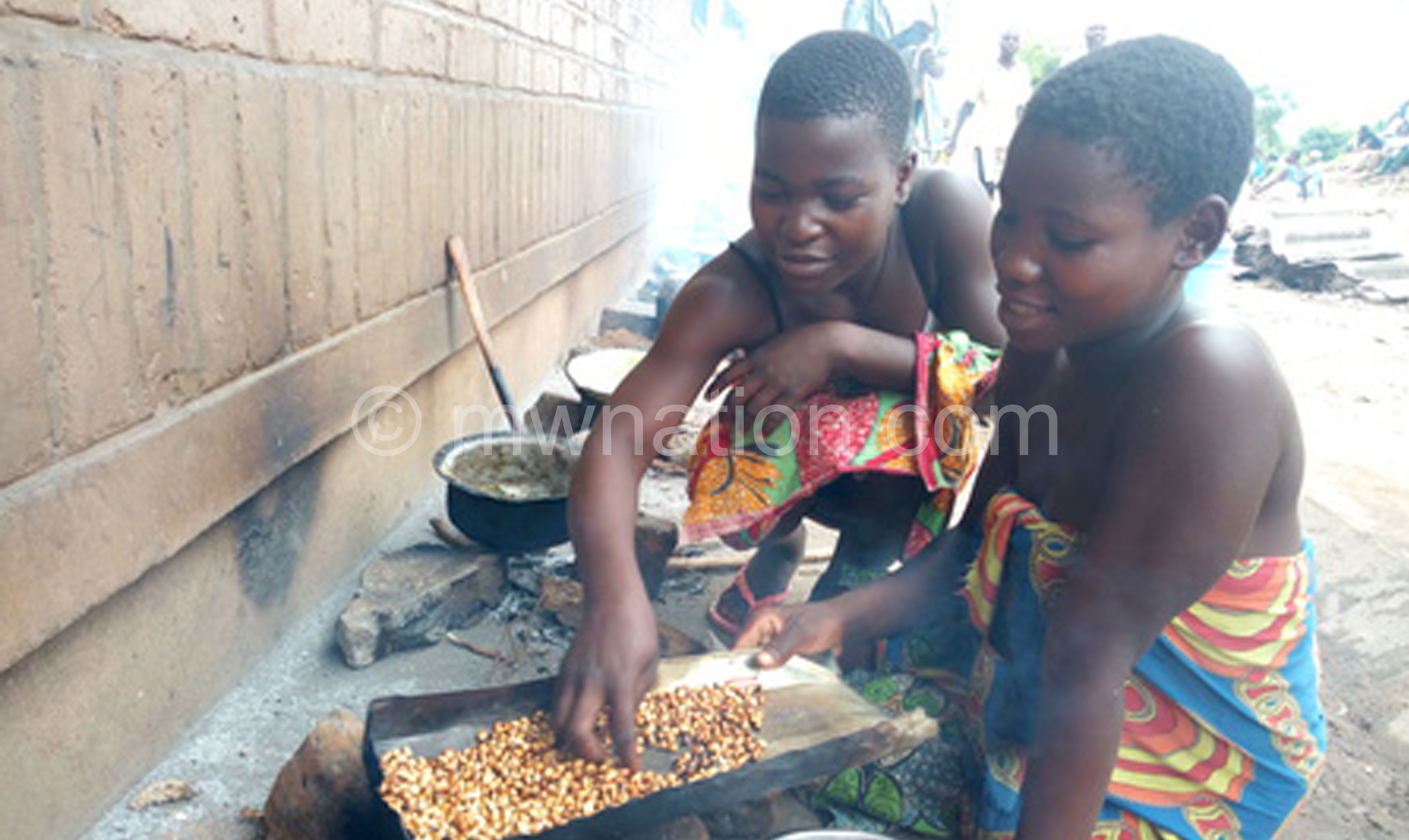Aid sidesteps rural camps
Heavy rains that have displaced 125 000 people in southern Malawi have left the Shire Valley inundated by vehicles ferrying food, blankets, mosquito nets and other relief items to evacuation centres.
Some locals at Chikwawa Boma liken the rush to some motor racing featuring the four-wheel-drives made for rough roads.
It is easy to tell which government agency, civil society organisation, company and development agency has the best fleet.

But thousands of people fleeing tragic effects of weeklong torrents in some remote parts of the flood plain are at risk of starvation and fatal diseases because the life-saving consignments are not reaching their unsanitary, overcrowded camps.
The hard-to-reach survivors feel sidestepped as aid is mostly reaching camps near urban trading centres and tarred roads.
We visited three camps in Chapananga-a border region over 50 km west of Chikwawa Boma-where about 3 000 displaced persons had gone without food by Friday. The area has been cut off from Chikwawa District Council by a river the size of two football fields, where a bridge is taking shape. To get there, we covered over 250km via Mwanza and Zobue in Mozambique.
“We haven’t received food since March 8 when we fled stormy rains that destroyed our homes. Many cannot afford a single meal a day. We cry for children, pregnant women and patients,” said group village Gaga.
The homeless community occupies a derelict camp that housed refugees escaping civil war in Mozambique in the 1980s. The buildings, where people sleep on dusty floors, were home to Chang’ambika Community Day Secondary School (CDSS), which was abandoned following the opening of Changoima CDSS nearby.
The people living rough use a foul-smelling, makeshift pit latrine opened two weeks after the tragedy that struck “like the end of the world”, according to Gaga.
“Open defaecation in surrounding bushes is widespread. We’re afraid of cholera because diarrhoeas are already common. Children may suffer malnutrition due to hunger and poor sanitation,” said Norah Nyangulu.
The National Disaster Risk Management Policy prompted by the 2015 devastating floods requires the government to provide relief items swiftly.
But the lengthy food and sanitation crisis expose rural-urban inequalities and lack of preparedness.
Government spokesperson Henry Mussa called for a coordinated emergency response, saying all donations ought to go through local councils and the Department of Disaster Management Affairs Management (Dodma) “to avoid duplications”.
And commissioner for disaster affairs Wilson Moleni said Dodma appreciates various efforts to alleviate the suffering of affected people, but givers must avoid a “situation where more assistance is being provided to a few areas at the expense of other places equally in need”.
The citizens crammed in camps want an end to the long wait, barely a week after President Peter Mutharika told their colleagues at a roadside camp in Nchalo that “there is enough food for everyone”.
The President also warned against discrimination in the distribution of relief supplies.
But desperation in unreached communities is deepening. They say interventions are slow, scanty and skewed.
“We don’t know what the children will eat when they return from school and I scarcely produce enough milk for my twins,” says Dorica Julius, breastfeeding the babies at Social Initiative for Poverty Reduction Programme (Siprep) Hall in Chapananga.
Kunyondo Camp chairperson Chrissy Masanza is equally worried about children in over-crowed settings lacking food and sanitation.
“Life in congested settings is not easy. Many children refuse to go to school with nothing in the stomach. Signs of malnutrition are already showing,” she says.
Concurring, village civil protection committee secretary Obed Nandiyale wants a quick end to exclusion faced by off-road affected populations.
“From day one, we have been phoning area civil protection committee leaders and district disaster management officers to come to our rescue, but they tell us essential goods in stock cannot reach us because the roads are impassable,” he says.
On the way to Chagambatuka Primary School, just 15km from the Thabwa Trading Centre along M1 on East Bank Road, we found a truck carrying Unicef consignments stuck in the mud, further prolonging the hardship of flood victims.
At the school, few women were seen cooking wild vegetables and frying dry maize on open fires in the shadow of classrooms where the homeless have displaced all pupils from Standard One to Seven. The pupils were seen learning in tree shades.
Alfred Thawani’s family was the first to occupy the school holding 1442 people, including 249 children, 29 pregnant women and 21 living with HIV.
“My house collapsed. Here, it is not easy to take drugs without food and privacy. Everyone knows I’m not taking painkillers. When I take the drugs while hungry, I feel dizzy and drained; the heart beats faster,” says a person living with HIV.
Four campmates on TB treatment are similarly affected.
“I can do without a meal a day, but not a child taking TB drugs and ARVs daily. The boy coughs all night long, complains about chest pains and sometimes skips the dose when there is no food,” says a woman nursing an 11-year-old grandchild diagnosed with HIV and TB.
Clement Chamsale of Catholic Development Commission in Chikwawa Diocese concurs that the response has been slower than was the case in the 2015 disaster.
“We have been taken unawares by the magnitude of the disaster and partners were stretched because Mozambique and Zimbabwe are also hit hard. But this does not mean there is nothing happening. Funds are trickling in and stakeholders are on the ground, exploring ways to reach affected areas without leaving anyone behind,” he says.
The floods have hit almost one million people in Malawi, killing 56 and injuring 577.
The lengthening delays response affects their health, well-being and human dignity.
“We are suffering like second-class citizens. It appears we don’t count in the eyes of the government. Yet we are Malawians like any other,” says Last Zuda of Chang’ambika in the southwestern border with Mozambique. n





